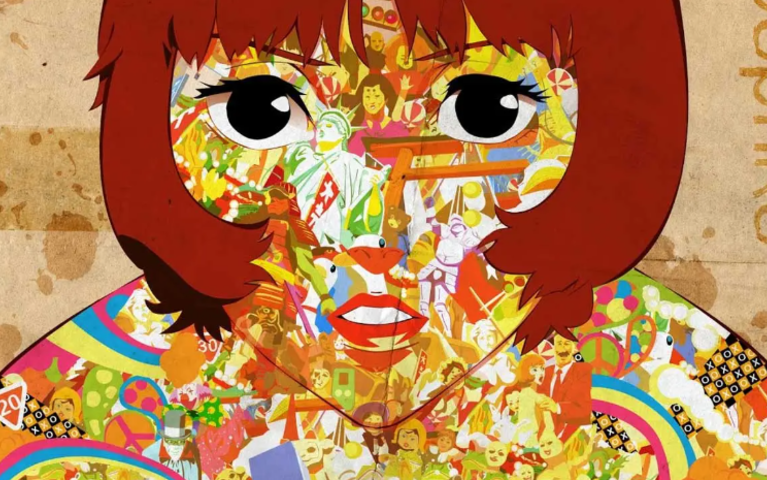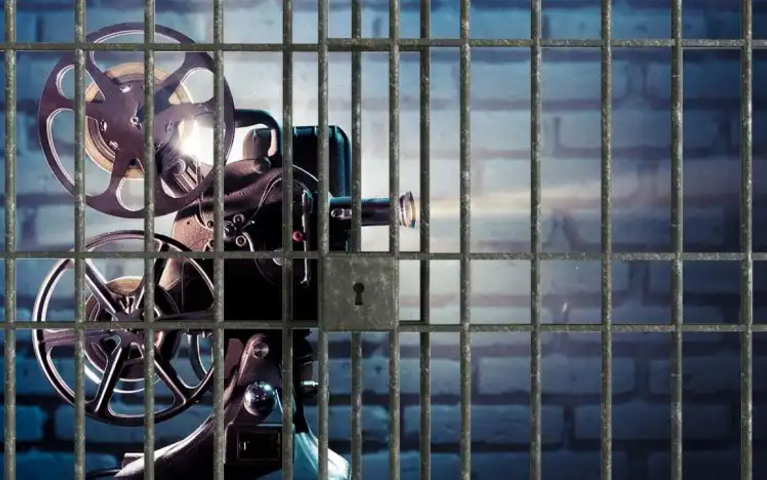Film Review: Paprika

On my first day working at the Film Library, a colorful cover on the Asian films’ shelf caught my eye. It was for an animated film but it wasn’t in the children’s section. I asked about it and was told that the film was about dreams. Surely, I was compelled to see for myself.
Paprika – the 2006 Japanese Anime Sci-Fi film, directed by Satochi Kon and adapted from Yasutaka Tsutsui novel – starred Megumi Hayashibara as the voice of Paprika, with music by Susumu Hirasawa.
A story centered around Dr. Atsuko Chiba, who is a scientist by day, and a dream analyst (Paprika) by night. She could dive into other people’s dreams to help them through their problems, using the DC Mini, a device intended to treat psychiatric patients. A cop forms a relationship with Paprika, and she helps him through his feelings of shame, but as they go deeper into the cop’s subconscious, a discovery unfolds.
The device that permits therapists to interject and record dreams is stolen by an evil entity and used to terrorize others. A group of scientists go on a thrilling mission and dreams intertwine with reality, leaving the viewer questioning truth from fiction.
Imagery transcending common knowledge of visual horror; a circus where the cop is caged for an audience of his clones, a therapist drowning in a pillow, a march led by dolls of all sizes and colors, in a city that was luminous and shifting in structures, the expressions, the noises – we are taken along with these scientists into a strange nightmare, and what is usually a scary experience becomes riveting .
Amidst all the visuals rooted in Japanese mythology and a dialogue taking psychological and existential approaches – such as when Paprika establishes a parallel between the internet and the dreams, as both are “areas where the conscious mind vents”. There is a recurring social stigma that rather interrupts experience.
The scientist and creator of the machine, Dr. Kosaku Tokita, was an overweight man in his 20’ s. Instead of identifying this character as the genius and driving force of the mission, he is reduced to ideas of fat shaming; drawn as sweaty, having poor sense of clothing, and constantly called out for his laziness and excessive eating. While this could have been an attempt at comic relief, it was limiting to the character’s development. In a way, the film treats one man’s feeling of shame, and then contributes in the production of shame for another .
Winner of the Public Choice Award at Montreal Festival of New cinema, and nominated for countless awards including Venice’s Golden Lion, “Paprika” is possibly the inspiration to films like “Inception” (2010) and continues to be a reference into the animated field of thought and dreams, but it’s also a curious case of film structure in the way it travels with many characters and story arcs yet is not interested in giving the expected resolve.
*Hosam Omran is the Supervisor at the Film Library.















